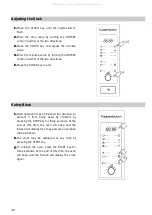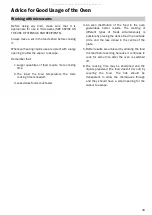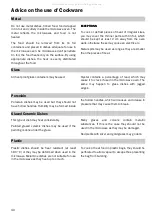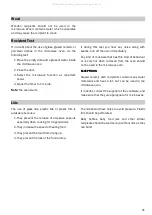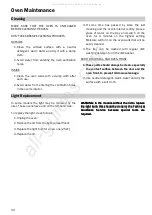
27
Description of the Microwave Oven
The advantages of a microwave oven:
In a conventional oven the heat radiated by the
resistances or gas burners, slowly penetrates the
food from the outside to the inside. There is,
therefore, a great loss of energy in the heating of the
air, oven components and recipients.
On the other hand, in microwave ovens the heat is
generated in the interior of the food itself, heating it
from the inside outwards. There is therefore no loss
of energy as the air, interior walls of the oven and
recipients (when adequate) do not heat up with
microwaves.
In short, microwave ovens have the following
advantages:
1. Save on cooking time: in general there is a 3/4
reduction of the cooking time than with
conventional methods.
2. Ultra-quick defrosting that prevents bacteria
development.
3. Electricity saving.
4. Maintaining the nutritive value of the food due
to the cooking time reduction.
5. Easy cleaning.
How the microwave oven works
In the microwave oven there is a high voltage valve
called "Magnetron" that converts electric energy to
microwave energy. These electromagnetic waves are
conducted to the inside of the oven cavity by means
of wave-guide and spread by a mode stirrer or by a
turntable.
Inside the oven the microwaves spread out in all
directions and are reflected by the metallic walls,
penetrating the food evenly.
All manuals and user guides at all-guides.com
all-guides.com

















